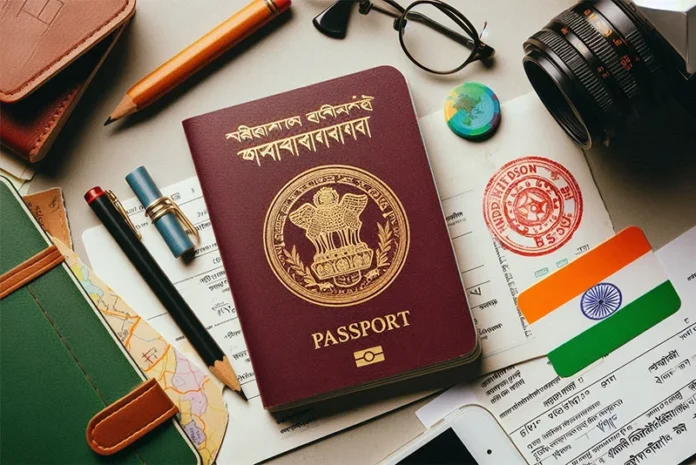The recent decision by Indian authorities to suspend visa processing for Bangladeshi nationals is expected to strain the already delicate relationship between India and Bangladesh. As political turmoil grips Bangladesh following the collapse of Sheikh Hasina’s regime, the ramifications of this shutdown extend beyond diplomatic ties to affect tourism and cross-border trade. This situation represents not only a logistical hurdle for travelers but also reflects broader geopolitical dynamics at play in South Asia.
Context: The Political Landscape in Bangladesh
On August 5, 2024, Bangladesh witnessed significant political upheaval, resulting in the ousting of Prime Minister Sheikh Hasina. Amidst widespread protests and violence, the Indian government chose to shut down visa processing centers in Dhaka and other cities indefinitely. The immediate closure was a response to vandalism at some Indian visa centers by mobs opposing Indian influence, highlighting the intense anti-Indian sentiment that surged post-regime change. This climate of instability has raised concerns about the safety of Indian diplomatic personnel and the ability to process visas efficiently.
Current Visa Processing Situation
According to Randhir Jaiswal, spokesperson for the Ministry of External Affairs (MEA), India is currently issuing a limited number of visas, primarily for medical emergencies or urgent travel. The spokesperson emphasized that full resumption of visa operations hinges on improvements in the law and order situation in Bangladesh. This precarious state raises concerns about safety and security at Indian visa centers, which have already seen significant operational disruptions due to ongoing unrest.
In response to the chaotic environment, the Indian High Commission in Dhaka is functioning at only 10% capacity. Over a hundred non-essential Indian staff managing the centers have evacuated due to threats to their safety following the student protests. With police forces overwhelmed and fearful of backlash from angry protesters, many law enforcement officials abandoned their posts, exacerbating the security crisis.
The Impact of Visa Restrictions on Bilateral Relations
The suspension of visa processing has triggered alarm bells in both nations. Tourism from Bangladesh to India has significantly decreased, with a notable drop in passenger flights and train services. In 2023, Bangladesh accounted for over 22% of foreign tourist arrivals in India, making it a crucial market for Indian tourism. The ongoing restrictions threaten to dampen this influx, impacting various sectors, including hotels, restaurants, and travel agencies in Indian cities, particularly Kolkata.
The Broader Economic Impact
The restriction on tourist visas will likely have cascading effects on the economy. Local businesses that rely heavily on Bangladeshi tourists for shopping and leisure activities are already feeling the pinch. With fewer visitors, the hospitality and retail sectors may face significant revenue losses. Reports indicate that shopping tourism, particularly from Bangladesh, has diminished, leaving many businesses vulnerable to economic downturns.
Additionally, Indian businesses have expressed concerns about the impact on cross-border trade, which has been a cornerstone of economic cooperation between the two nations. A reduction in movement across the borders can hinder supply chains, affecting not only the tourism sector but also various industries dependent on seamless trade.
Political Ramifications
India’s decision to limit visa issuance has not gone unnoticed in the political arena. Critics argue that these actions are punitive and may exacerbate existing tensions. The shutdown is seen as a reaction to the vandalism of Hindu temples during Durga Puja in Bangladesh, which India perceives as a sign of deteriorating communal harmony. This development underscores the fragile nature of inter-religious relations in Bangladesh and the implications it has for diplomatic relations with India.
On the diplomatic front, the interim government in Bangladesh has called the visa restriction a sovereign decision of India, asserting that it cannot be questioned. The adviser to the Bangladeshi government, Touhid Hossain, pointed out that issuing visas is ultimately India’s prerogative, emphasizing the importance of sovereign decisions in international relations.
However, the underlying issues remain contentious, as many observers fear that continued visa restrictions may lead to further diplomatic friction and a more significant rift in bilateral relations.
Seeking Solutions: Dialogue and Cooperation
In light of these developments, both countries must prioritize dialogue to restore normalcy in visa processing and diplomatic relations. The Indian High Commission in Dhaka has resumed limited operations but is currently functioning at only 10% capacity due to security concerns.
Touhid Hossain, Bangladesh’s Foreign Affairs Adviser, suggested that India relax its visa processes to facilitate smoother travel for individuals, especially students. Such measures could help mend ties and improve public sentiment on both sides. An open and ongoing dialogue will be essential in addressing the root causes of the current unrest and in fostering a climate conducive to tourism and trade.
The shutdown of Indian visa processing for Bangladeshi nationals poses major challenges for both countries. As authorities work to address the security concerns that prompted this decision, it is crucial for India and Bangladesh to maintain open lines of communication. Only through collaborative efforts can both nations hope to navigate this complex situation and restore their historically close relationship.
While the current crisis may strain bilateral ties, proactive diplomatic engagement could pave the way for a more resilient and cooperative future between India and Bangladesh. Both nations stand at a critical juncture, and the decisions made in the coming weeks will undoubtedly shape their relationship for years to come.


